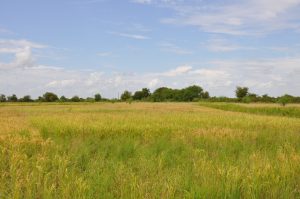Using cover crops and compost with conservation tillage prevents weeds in herbicide-free rotations of wheat and potato
 A recent study, published in the journal of Ecology and Evolution, found that farmers can suppress weeds using less tillage when they combine cover crops and compost. Weeds are a major issue, particularly for organic agriculture that does not heavily apply herbicides. Instead, weeds can be controlled with deep tilling of the soil. However, as the benefits of conservation tillage for soil health and climate change mitigation are becoming more widely recognized, conservation tillage is gaining popularity in North America. This study took place in fields managed organically for over 20 years, looking at a cropping system where two years of grass-clover cover crops were followed by winter wheat and potato. Under the tillage strategies they looked at, living mulches or cover crops were incorporated into the rotation, and either compost or mineral fertilizer were applied to the cropping system. Overall, the most effect management of weeds was accomplished by using multiple strategies simultaneously, where conservation tillage was combined with cover crops and compost fertilization.
A recent study, published in the journal of Ecology and Evolution, found that farmers can suppress weeds using less tillage when they combine cover crops and compost. Weeds are a major issue, particularly for organic agriculture that does not heavily apply herbicides. Instead, weeds can be controlled with deep tilling of the soil. However, as the benefits of conservation tillage for soil health and climate change mitigation are becoming more widely recognized, conservation tillage is gaining popularity in North America. This study took place in fields managed organically for over 20 years, looking at a cropping system where two years of grass-clover cover crops were followed by winter wheat and potato. Under the tillage strategies they looked at, living mulches or cover crops were incorporated into the rotation, and either compost or mineral fertilizer were applied to the cropping system. Overall, the most effect management of weeds was accomplished by using multiple strategies simultaneously, where conservation tillage was combined with cover crops and compost fertilization.


